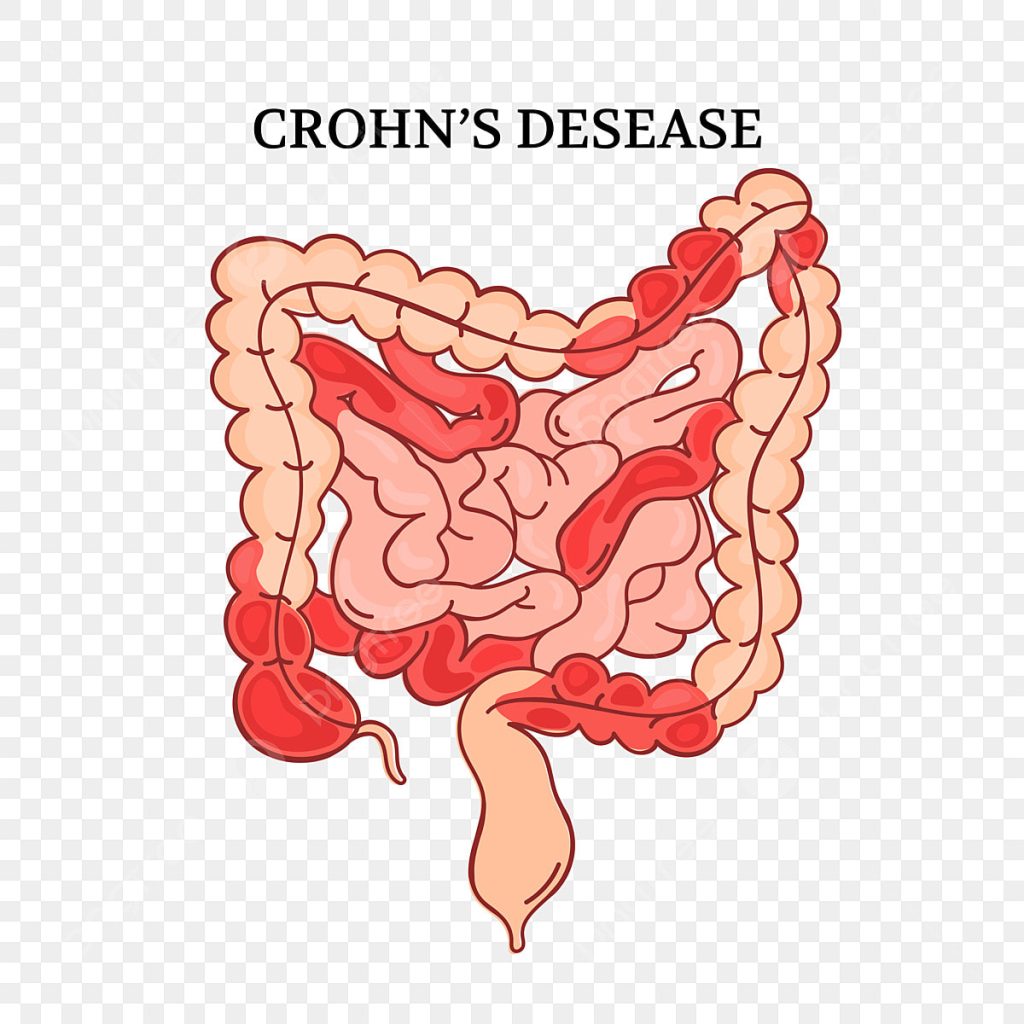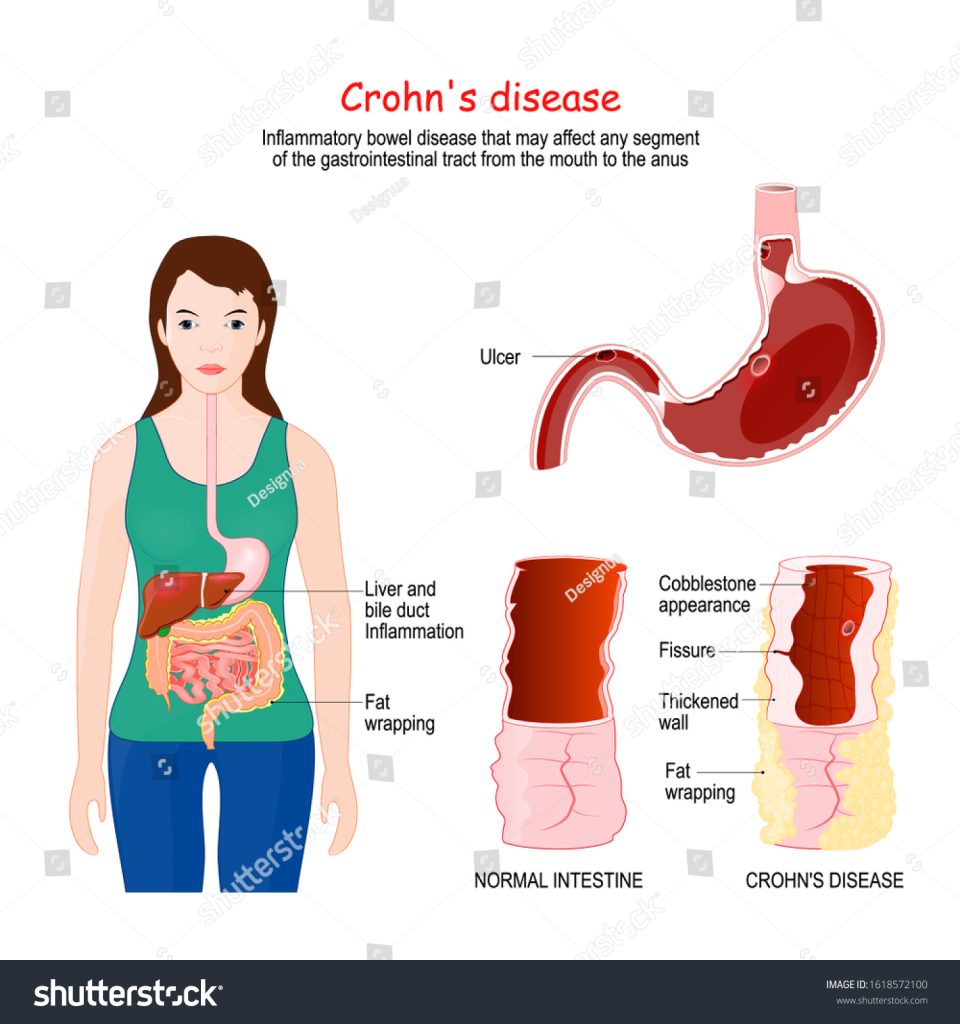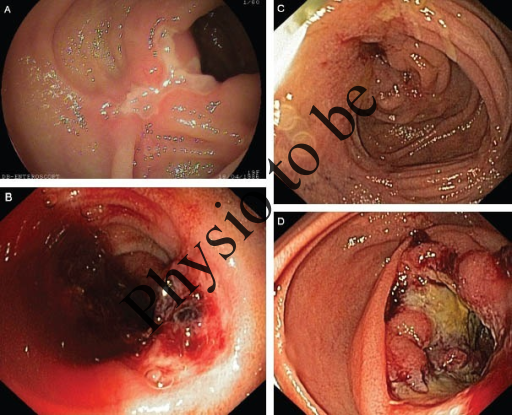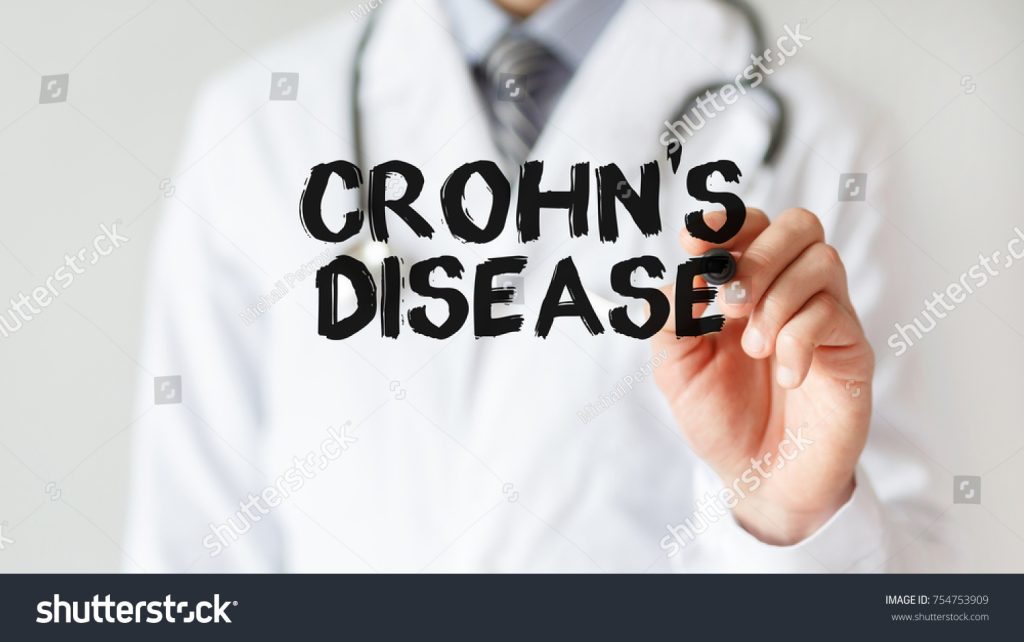
Crohn’s disease is a type of chronic inflammatory bowel disease that can affect any part of the gastrointestinal tract, from the mouth to the anus. It is characterized by inflammation, swelling, and thickening of the intestinal wall, which can lead to a range of symptoms such as abdominal pain, diarrhea, rectal bleeding, fatigue, and weight loss.
Causes:
The exact cause of Crohn’s disease is not fully understood, but it is thought to involve a combination of genetic, environmental, and immunological factors. Here are some potential causes:
Genetics: There appears to be a genetic component to Crohn’s disease, as it tends to run in families. Studies have identified several genetic mutations associated with an increased risk of developing the condition.
Abnormal immune response: In Crohn’s disease, the immune system mistakenly attacks healthy cells in the digestive tract, leading to inflammation and damage.
Environmental factors: Certain environmental factors, such as smoking, may increase the risk of developing Crohn’s disease.
Gut microbiome: Research has shown that an imbalance in the gut microbiome, the community of microorganisms living in the digestive tract, may contribute to the development of Crohn’s disease.
Previous intestinal infection: Some research suggests that a previous intestinal infection may trigger an abnormal immune response, leading to Crohn’s disease.
Sign and Symptoms:
The signs and symptoms of Crohn’s disease can vary depending on the severity of the inflammation and where it occurs in the digestive tract. Some common signs and symptoms include:

- Abdominal pain and cramping
- Diarrhea
- Rectal bleeding
- Weight loss
- Fatigue
- Low-grade Fever
- Mouth sores
- Skin problems
- Reduced appetite
Complications of Crohn’s Disease:
Crohn’s disease can cause a number of complications, some of which can be serious and require medical treatment. Some possible complications of Crohn’s disease include:
- Bowel obstruction: Inflammation and scarring in the digestive tract can cause the bowel to become narrowed or blocked.
- Fistulas are abnormal connections that can form between different parts of the digestive tract or between the digestive tract and other organs.
- Abscesses: These are pockets of pus that can form in the abdominal cavity or around the anus.
- Nutritional deficiencies: Malabsorption and inflammation can interfere with nutrient absorption, leading to deficiencies in vitamins and minerals.
- Colon cancer: People with Crohn’s disease have an increased risk of developing colon cancer, mainly if the disease affects the colon or rectum.
- Osteoporosis: Chronic inflammation and the use of certain medications to treat Crohn’s disease can lead to bone loss and osteoporosis.
- Anal fissures: These are small tears in the skin around the anus, which can cause pain and bleeding.
- Anemia: Chronic bleeding and nutrient deficiencies can lead to anemia, a condition in which there is not enough red blood cells to carry oxygen to the body’s tissues.
Diagnosis :

Physical examination: Your healthcare provider will perform a physical exam, including a rectal exam to check for signs of inflammation in the rectum or colon.
Endoscopy: Endoscopy involves inserting a thin, flexible tube with a camera into the digestive tract to visualize the lining of the intestine and take tissue samples for biopsy
Blood tests: Blood tests can help identify inflammation in the body, as well as nutritional deficiencies.
Stool tests: Stool tests can help rule out infections or other conditions that may cause similar symptoms.
Imaging tests: Imaging tests, such as X-rays, CT scans, or MRI scans, can help visualize the digestive tract and identify signs of inflammation, blockages, or other abnormalities.
Treatment:
Medications: Medications used to treat Crohn’s disease include anti-inflammatory drugs, immunosuppressants, antibiotics, and biologics. These medications can help reduce inflammation, manage symptoms, and prevent complications.

Dietary changes: Some people with Crohn’s disease may benefit from making changes to their diet, such as avoiding certain foods that trigger symptoms or increasing their intake of fiber and fluids.
Stress management: Stress can exacerbate symptoms of Crohn’s disease, so finding ways to manage stress, such as practicing relaxation techniques or getting regular exercise, may be helpful.
Surgery: In some cases, surgery may be necessary to remove damaged or diseased portions of the digestive tract or to repair complications such as fistulas or abscesses.

